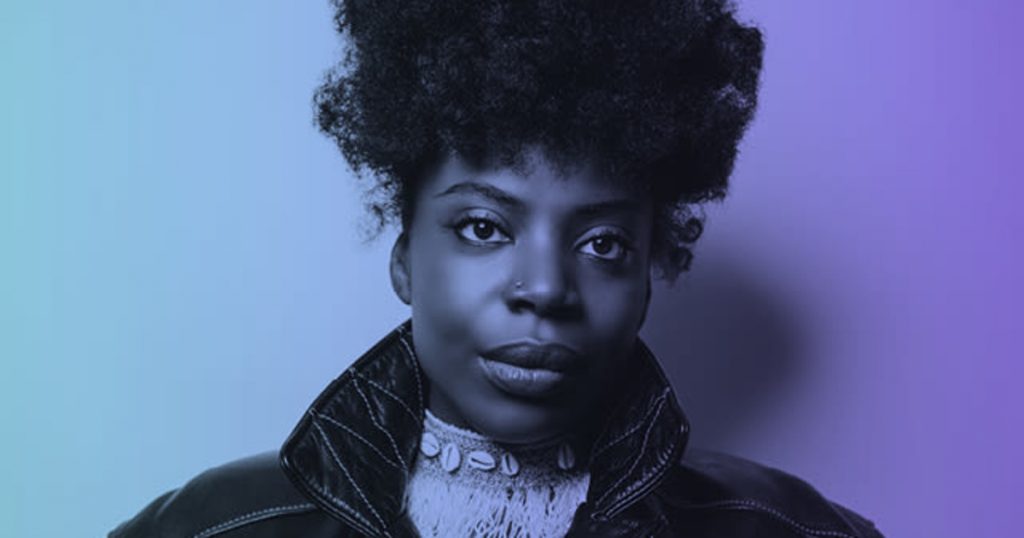The Progressive Underground: Melanie Charles elevates voices while redefining jazz
Chris Campbell August 26, 2024On this edition of 5 on 5, we dive into the soulful, jazz-infused world of Melanie Charles — a powerful voice in music and activism.

Melanie Charles
Born and raised in Brooklyn, the daughter of Haitian immigrants, Melanie Charles grew up in a one-bedroom apartment in the projects before her family of 10 moved to Bushwick. From those humble beginnings, she found her way to jazz, studying at LaGuardia High School and later at The New School for Jazz and Contemporary Music. Her path was unconventional, but she honed her craft and developed a penchant for blending jazz fundamentals with innovative beat-making, reimagining classics through a modern, exploratory lens.
1. “Without Us”
Her breakthrough came with her independent release The Girl With The Green Shoes — a criminally underrated album where she wove together her voice, flute, sampler and a variety of effects to create a deep, immersive, lo-fi quasi-mixtape experience.
2. “Detour Ahead”
The Girl With The Green Shoes caught the attention of Verve Records, leading to her signing with the label. As she began work on her debut, however, tragedy struck: Breonna Taylor, a Black medical worker, was shot and killed by police in Louisville, Ky. during a botched raid on her apartment, touching off wide-scale demonstrations that erupted that year over policing and racial injustice in America.
Taylor’s death served as a harsh reminder of the fragility of Black women’s lives in America. Charles channeled her pain and passion into her music, titling her Verve debut, Y’all Don’t (Really) Care About Black Women. It was a bold statement that made Verve hesitate, but she stood firm, and they ultimately backed her.
3. “Jazz (Ain’t Nothing But Soul)”
In addition to making a poignant statement on racial injustice, Charles also pays tribute to the underappreciated Black women in jazz, reimagining the works of legends like Billie Holiday, Ella Fitzgerald and Betty Carter while making a powerful statement about the ongoing struggle for recognition and respect.
This album became a manifesto for fair treatment and recognition of Black women in the music industry. It didn’t just resonate within the jazz community — it sparked a movement. Her fearless approach earned her collaborations with legends like Wynton Marsalis and solidified her place in the new and emergent jazz vanguard.
4. “I Need Time”
Her innovative style, combined with her commitment to activism, places her among a new generation of artists, such as Theo Croker, Ego Ella May, Kamasi Washington and various others who are redefining jazz. She’s not just making music — she’s making a statement, whether it’s through her work with her podcast project “Make Jazz Trill Again,” or through her electrifying performances. Melanie’s music is a call to empower and uplift Black women, celebrating their resilience and creativity.
5. “Damballa Wedo”
Melanie Charles will be performing at this year’s Detroit Jazz Fest on Saturday, Aug. 31 from 7:15-8:30 p.m. on the Carhartt Stage.
Support the shows you love.
WDET’s unique music programs are dedicated to exploring the music and culture of our region and the world. Keep the music going. Please make a gift today.Give now »
